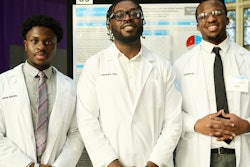High Hopes for Health Bill
WASHINGTON — Support is growing in Congress and the Clinton administration for legislation that would increase the status of the federal office on minority health — and, in the process, create new funding opportunities for Black college medical schools.
Among other goals, the Health Care Fairness Act provides new support to academic health centers with a long track record of serving underrepresented minorities and training students of color for medical careers. There is no specific dollar amount attached to this provision, but advocates say it could prove a major benefit for HBCU medical schools.
“For too many years, this country has witnessed one disturbing report after another detailing the growing disparities in health status between our minority and majority populations,” says Louis Sullivan, M.D., former secretary of Health and Human Services under President Bush and president of Morehouse School of Medicine. “If we as a nation are to solve these complex problems, we must take an aggressive approach on all fronts.”
Sullivan says approval of the legislation would give Black medical schools “access to the types of resources necessary to build and enhance research infrastructure and … compete on a level playing field with other prominent institutions.”
Already, the Health Care Fairness Act has a lengthy list of co-sponsors, including many Congressional Black Caucus members in the House of Representatives. The Senate sponsor is Sen. Edward Kennedy, D-Mass., who introduced the legislation along with four other Democrats in that chamber.
Aside from Black college implications, the bill also would target changes at the National Institutes of Health, the federal government’s chief sponsor of medical research. Here are other major sections of the bill:
n It would elevate the status of the NIH Office of Research on Minority Health to a National Center for Research on Minority Health and Health Disparities. Status as a “center” presumably would provide more resources and visibility to health efforts.
n The director of this new center would have a significant role in NIH research policy and initiatives, while the center would serve as a catalyst for strategic planning at the agency.
n The center director would award peer-reviewed grants in areas of promising research not currently being addressed by existing centers and institutes at NIH.
n Individuals who agree to participate in minority health research or research into health disparities could receive up to $35,000 in education loan forgiveness for each year of service.
n The bill also would authorize $100 million for minority health research activities in 2000, with unspecified amounts of funds for fiscal years 2001 through 2004.
Black Caucus members and other lawmakers have proposed similar initiatives previously, but congressional aides say this legislation is different because it has more support from within NIH. David Satcher, M.D./Ph.D., former Meharry president and now the U.S. surgeon general, also has played a major role in building administration support for the plan, one aide says.
The legislation cites many of the documented disparities in health care access and disease affecting persons of color. African Americans have a higher cancer death rate than Whites, and infant death rates among African Americans, Hispanics and Native Americans are above the national average. Minority groups also have higher rates of heart disease, diabetes and sudden infant death syndrome than Whites, the legislation states.
The bill also would create a federal advisory council of 18 to 24 individuals to counsel the center on research and other issues.
The Senate version of the bill was referred to the Health, Education, Labor and Pensions Committee. The House version is under the jurisdiction of the House Commerce Committee.
© Copyright 2005 by DiverseEducation.com


















